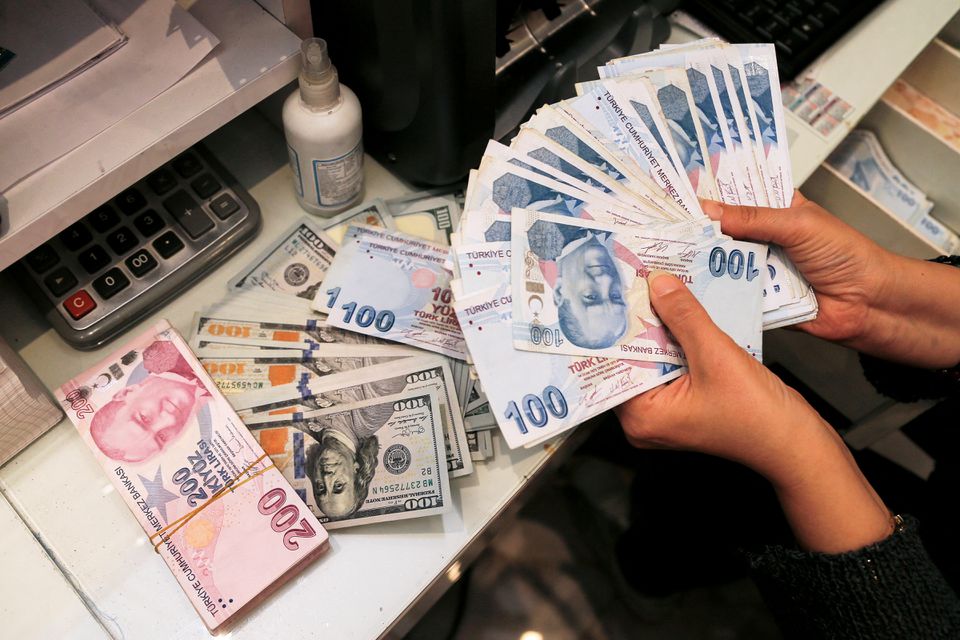Interest rates in Turkey are rising amid expectations that government policies will become more orthodox no matter who wins May 14 elections, and after a regulatory change to make holding Turkish lira more attractive to counter FX demand, bankers said.
Despite soaring inflation, the central bank has slashed its key rate to 8.5 per cent from 19 per cent since late 2021 in an unorthodox policy championed by President Tayyip Erdogan, who faces his biggest political challenge of two decades in power in the votes.
Nonetheless, deposit rates have risen 10 percentage points to 29 per cent in the last six months, central bank data shows. Rates on accounts designed to protect against lira depreciation have doubled to more than 20 per cent and interest rates on some consumer loans have neared 50 per cent, though their use has been limited.
Authorities introduced a series of measures to encourage Turks to continue holding savings in lira ahead of the votes, while pushing banks to increase the share of lira deposits.
Treasury bond yields have also risen despite the requirement that banks hold bonds against loans. The benchmark two-year bond yield has risen 5 points in a month while the benchmark 10-year bond yield has risen nearly 3 points.
Bankers say increasing expectations of a return to orthodox economic policies and the removal of an interest rate limit in a state scheme to protect lira deposits from depreciation caused the overall rise in interest rates.
“We see deposit rates have started to rise significantly to limit rising FX demand as authorities removed an upper rate limit in deposits,” a senior banker said, adding that the rise is seen as a precursor to orthodoxy in policies, with interest rates expected to stand between 25 per cent-40 per cent after the elections.
Several banks are forecasting a lira fair value of 23-25 against the US dollar, up from the current 19.40.
Erdogan’s unorthodox policy is aimed at boosting exports, production and economic growth by slashing interest rates and by heavily managing the credit, foreign exchange and bond markets.
Bankers say the widespread expectation for lira to depreciate after elections is causing concern and foreign currency demand.
“Banks are trying to hit their targets, so deposit rates exceeded 30 per cent. Some consumer loans are priced 4 per cent per month, but nobody wants to borrow at these rates. Commercial loan rates also increased and hit around annual 40 per cent to fund the high deposit rates,” another banker said.
Bankers expect the widening gap between lower loan rates and rising deposit rates to cause a fall in banks’ profits in the second half of the year.







Click here to change your cookie preferences